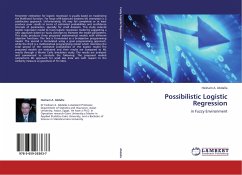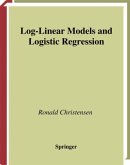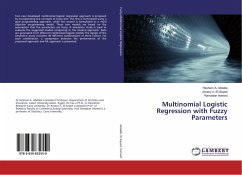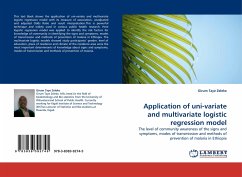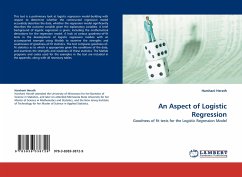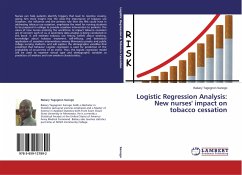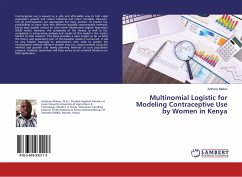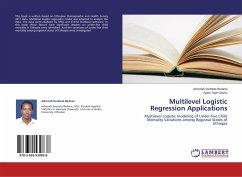Parameter estimation for logistic regression is usually based on maximizing the likelihood function. For large well-balanced datasets ML estimation is a satisfactory approach. Unfortunately, ML may fail completely or at least produce poor results in terms of estimated probabilities and confidence intervals of parameters, specially for small datasets. This study extends logistic regression model to fuzzy logistic regression model by suggesting a new approach based on fuzzy concepts to estimate the model parameters. This study produces three proposed mathematical models with different objective functions. The first is formulated as a bi-objective programming model. The second is formulated using a goal programming approach, while the third is a mathematical programming model which minimizes the total spread of the estimated probabilities of the logistic model. The proposed models are evaluated and their results are compared to ML results through a Monte Carlo simulation study. The results are analyzed and summarized to conclude the following: The proposed models outperform ML approach for small size data sets with respect to the similarity measure as goodness of fit index
Bitte wählen Sie Ihr Anliegen aus.
Rechnungen
Retourenschein anfordern
Bestellstatus
Storno

